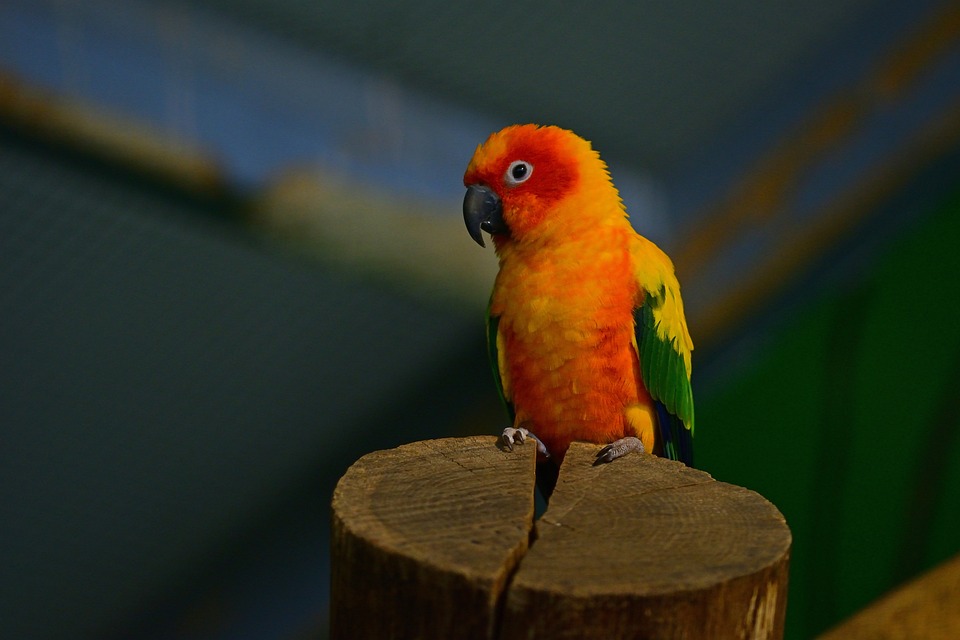**How to Handle Fear and Anxiety in Your Parrot**
Understanding the Root Causes of Fear and Anxiety in Parrots
Parrots, like humans, can experience fear and anxiety. These emotions can stem from a variety of factors, including past trauma, lack of socialization, changes in environment, or even genetics. Understanding the root causes of fear and anxiety in your parrot is crucial in addressing and alleviating these issues effectively.
Creating a Safe and Comfortable Environment
Creating a safe and comfortable environment is the first step in helping your parrot overcome fear and anxiety. Consider the following tips:
1. Provide a spacious and well-equipped cage: Ensure your parrot’s cage is large enough for it to move around comfortably. Include appropriate perches, toys, and hiding spots to create a sense of security.
2. Offer a consistent routine: Establishing a predictable daily routine can help reduce anxiety in parrots. Regular feeding times, play sessions, and sleep schedules can provide a sense of stability.
3. Minimize exposure to stressful stimuli: Identify and minimize potential stressors in your parrot’s environment. Loud noises, sudden movements, or other pets can trigger fear and anxiety. Gradually introduce them in controlled situations to help your parrot acclimate.
4. Create a quiet and calm space: Set up a designated area for your parrot where it can retreat to when feeling overwhelmed. Make sure this space is quiet, dimly lit, and free from distractions.
Building Trust and Strengthening the Bond
Developing a strong bond of trust with your parrot is essential in helping them overcome fear and anxiety. These strategies can assist you in building a trusting relationship:
1. Practice positive reinforcement: Reward your parrot with treats, praise, or favorite toys when it displays calm and confident behavior. This positive reinforcement helps create positive associations and builds trust.
2. Gradual socialization: Introduce your parrot to new people, animals, and experiences gradually. Provide a controlled and safe environment, allowing your parrot to observe and interact at its own pace.
3. Avoid force or punishment: Never force your parrot into situations that cause fear or anxiety. Forcing or punishing your parrot can lead to increased fear and may damage the trust you’ve built.
4. Engage in interactive play: Regular interactive play sessions can strengthen the bond between you and your parrot. Use toys that encourage mental stimulation and physical exercise, promoting a sense of well-being.
Seeking Professional Help
In severe cases or if you are unsure about handling your parrot’s fear and anxiety, seeking professional help from an avian veterinarian or an experienced avian behaviorist is highly recommended. They can provide expert guidance tailored to your parrot’s specific needs.
FAQs – Frequently Asked Questions
1. Q: How long does it take for a parrot to overcome fear and anxiety?
– A: The time it takes for a parrot to overcome fear and anxiety varies. It depends on the individual parrot, its past experiences, and the consistency of training and socialization efforts. Patience and persistence are key.
2. Q: Can parrots develop fear and anxiety later in life?
– A: Yes, parrots can develop fear and anxiety later in life. Changes in environment, traumatic events, or health issues can trigger these emotions. Prompt identification and intervention can help address the issues effectively.
3. Q: Can I use medication to help my parrot with anxiety?
– A: Medication should only be considered under the guidance of an avian veterinarian. They can evaluate your parrot’s condition and determine if medication is necessary or if behavioral modifications are sufficient.
4. Q: Will providing a companion parrot help reduce fear and anxiety?
– A: In some cases, a companion parrot can provide comfort and companionship, reducing fear and anxiety. However, introducing a new parrot should be done cautiously and gradually, considering the individual needs and preferences of each bird.
Remember, every parrot is unique, and it’s essential to tailor your approach to their specific needs. With patience, consistency, and love, you can help your parrot overcome fear and anxiety, creating a happier and healthier companion.









